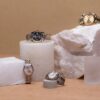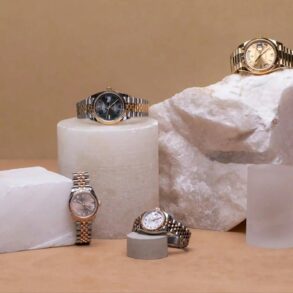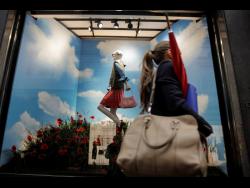Veuve Clicquot has teamed up with fashion designer McCartney to recycle its grape and cork waste into vegan handbags and shoes.
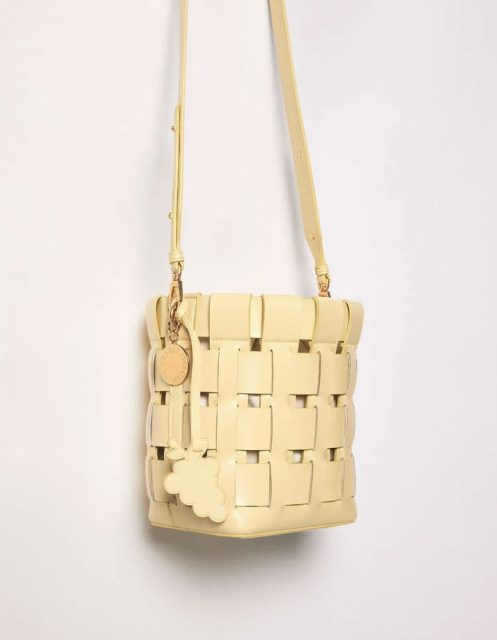
Two LVMH brands – Veuve Clicquot and Stella McCartney – have teamed up to recycle waste from the winemaking process into luxury fashion items.
By using grape stems and skins, McCartney has been able to craft her new Vegea range, which includes three bags, a bottle holder for Veuve Clicquot’s Yellow Label Champagne, and three styles of shoe.
The ‘vegan leather’ took less than 18 months to develop, and the grape waste comes from a Grand Cru vineyard in Bouzy, Champagne, while the cork waste is sourced from Veuve Clicquot’s cellar in Reims.
According to McCartney, she had been exploring the idea of turning grape waste into vegan leather in partnership with producers “from the Italian wine industry” but reached out to Veuve Clicquot in order to keep the project within the LVMH group.
“I am so thrilled to be part of this first-of-its-kind partnership between a fashion house and a Champagne maison – connected by our shared passions for sustainability, craftsmanship and innovation,” said McCartney.
Jean-Marc Gallot, CEO of Veuve Clicquot, said it filled him with joy that “beyond crafting one of the best Champagnes, our grapes can now also contribute to drive a brighter future in fashion.”
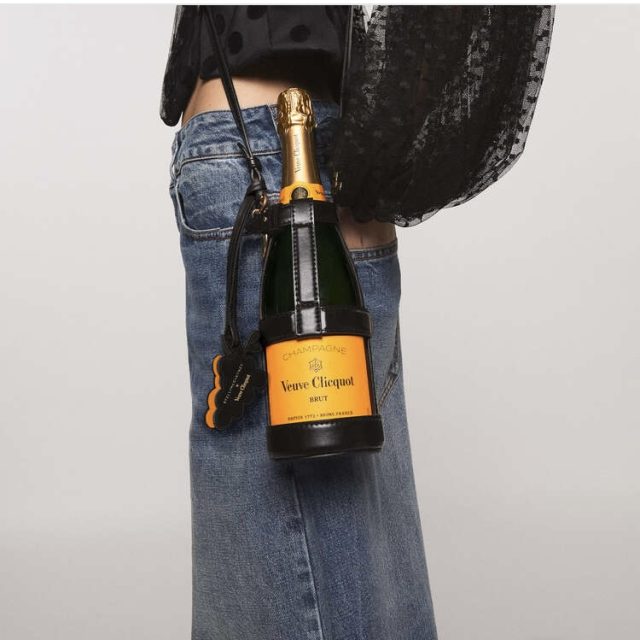
McCartney claims the process used to make her Vegea range uses 50% less water than the process of creating other leather alternatives.
Made from 80% vegetal, renewable and recycled raw elements, the fashion range mixes the grape stems and skins with vegetal oils and natural fibres to craft a material for making handbags, while the cork byproduct has been turned into a cork platform for a sandal.
Since launching her fashion brand in 2001, McCartney has never used leather, feathers, skin or fur in any of her creations.
“This collaboration is the perfect blend of my cruelty-free vision with Veuve Clicquot’s incredible natural ingredients, using waste to circularly create a luxurious alternative to animal leather that can be easily scaled and change the industry,” she said.
“You truly cannot tell the difference; this is a better way.”
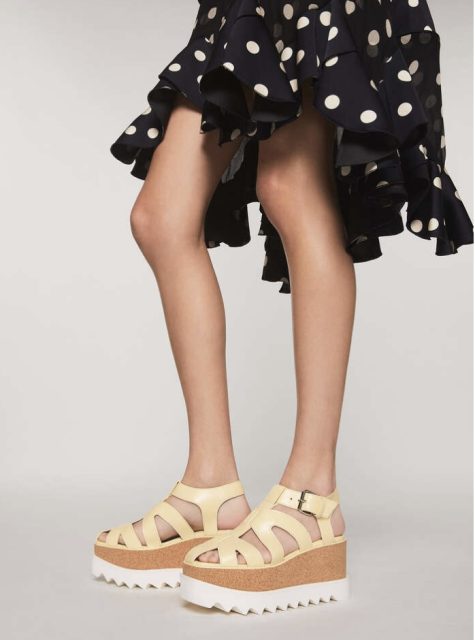
McCartney has previously spoken out about being seen as “an outsider” and an “eco-weirdo” when she started her brand more than 20 years ago.
” I was told I would never have a successful luxury business if I didn’t use leather, but I think 20 years later, I have shown that you can have a healthy, global business without having to sacrifice style for sustainability,” she said.
In April 2023, LVMH was named as Europe’s most valuable company, worth more than €455 billion.
This post was originally published on this site be sure to check out more of their content.

